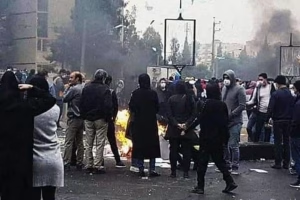Srinagar: In the bloodiest militant attack India has witnessed in nearly two decades, 26 people, including 25 Indian nationals and one Nepalese, were gunned down by suspected militants in the picturesque Pahalgam area of Jammu and Kashmir on Tuesday.
Seventeen others were left injured. The attack, which took place in a scenic meadow popular among tourists, has shattered the fragile calm the region had recently begun to enjoy.
The mass shooting is the deadliest since the 2008 Mumbai attacks. It marks a dramatic escalation in violence in the region where tourism had been flourishing in the aftermath of declining insurgency.
Prime Minister Narendra Modi, who was in Saudi Arabia, abruptly ended his trip and returned to New Delhi early Wednesday.
I strongly condemn the terror attack in Pahalgam, Jammu and Kashmir. Condolences to those who have lost their loved ones. I pray that the injured recover at the earliest. All possible assistance is being provided to those affected.
Those behind this heinous act will be brought…
— Narendra Modi (@narendramodi) April 22, 2025
Finance Minister Nirmala Sitharaman also curtailed her engagements in the United States and Peru to return in the wake of the tragedy.
Modi convened an emergency meeting with National Security Adviser Ajit Doval, External Affairs Minister S. Jaishankar, and other top officials upon arrival. A special cabinet-level security meeting was also scheduled for 12:30 GMT.
A shadowy group identifying itself as “Kashmir Resistance” claimed responsibility via social media, alleging that the victims were not ordinary tourists but affiliated with Indian security services.
In a subsequent statement, the group claimed the tourists were part of an undercover agency “tasked with research.” The veracity of these claims remains unverified.
Indian security forces believe Kashmir Resistance may be a front for Pakistan-based militant organizations such as Lashkar-e-Taiba and Hizbul Mujahideen. Pakistani officials denied involvement, stating they support only the moral and diplomatic rights of the Kashmiri people.

Security Sweep, Civil Shutdown, and a Region in Panic
A massive combing operation was launched by Indian forces in the forests of Pahalgam, and about 100 individuals previously suspected of militant sympathies have been detained for questioning.
Meanwhile, over a dozen civil society groups called for a region-wide shutdown in protest against the attack. Many schools were closed, and public life came to a near standstill.
Fear and panic gripped the tourist community. With the main highway from Srinagar blocked due to recent rainfall, air travel has become the only viable exit route.
Aviation Minister Rammohan Naidu Kinjarapu announced four special flights – two each to Delhi and Mumbai – and urged airlines not to hike fares amid the emergency. More flights remain on standby for additional evacuation needs.
Background: Tensions and Transformation in Kashmir
Since the Indian government revoked Jammu and Kashmir’s special autonomous status in 2019, the region has seen major political and demographic shifts.
The move allowed outsiders to settle and buy land in Kashmir, fuelling local resentment and drawing criticism from Pakistan.
With a heavy heart, paid last respects to the deceased of the Pahalgam terror attack. Bharat will not bend to terror. The culprits of this dastardly terror attack will not be spared. pic.twitter.com/bFxb2nDT4H
— Amit Shah (@AmitShah) April 23, 2025
While militant attacks have decreased significantly, rare but deadly incidents continue to threaten the region’s stability.
The last major attack occurred in June 2024, when militants targeted a bus carrying Hindu pilgrims, killing nine and injuring over thirty.
As India mourns the loss of innocent lives, questions loom large over the region’s future.
The Pahalgam attack has once again underscored the volatile nature of the Kashmir conflict and the enduring threat posed by militant groups despite years of counter-insurgency efforts and development-driven strategies.

























